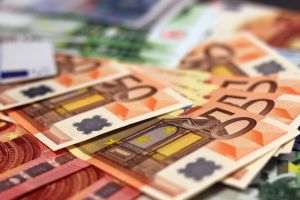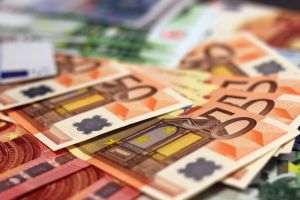The European Central Bank (ECB) is admonishing Croatia, in a six page document, issued on Friday, for the law which allows the conversion to Euros of loans denominated in Swiss Francs.
Despite the threats coming from the banks, the Croatian Parliament approved the law proposed by the Government, meaning that citizens can convert to Euros loans amounting to 3.4 billion dollars.
The costs of the conversion will be borne by the banks and according to the government, those costs are estimated at 6 billion Kuna (901 million dollars), whereas the Central Bank claims that the amount could rise to 8 billion Kuna.
On a threatening tone, the ECB explained the main effects that the law might have.
The conversion of the loans, as stipulated in the draft law, can lead to a decline in Croatia's international reserves, which might have unintended consequences on the country's macroeconomic stability, according to the document signed by ECB president Mario Draghi.
Moreover, a low level of the international reserves, as a result of the conversion, could deteriorate the independent operation of the National Bank, especially its ability to set its policy instruments, the ECB further says.
Mario Draghi also says that the draft law might lead to the deterioration of investor sentiment, due to the perceived increase in uncertainty and country risk.
"The retroactive effect of the draft law is not in line with the general principle of the European directive in the sector", the ECB further notes.
The ECB also emphasizes the costs which the new law would involve for the banking system: "This (ed. note: the law) might have a negative effect on the profitability, capitalization and future lending capabilities of the affected lenders.
According to the impact analysis of the Croatian central bank, the conversion costs for the banks could reach 1.1 billion Euros, involving losses for the banking sector that would be the equivalent of approximately three years of profit".
The proposed measures will affect eight of the biggest banks in Croatia, most of them owned by foreign shareholders, according to the ECB: "In fact, the foreign banking groups have a dominant position in Croatia, with approximately 90% of the assets of the banking system, as Italian, French and Austrian banks are among the biggest institutions".
The European Central Bank has not been consulted that it has not been consulted by the Croatian authorities concerning the draft law.
In Croatia, CHF loans amount to approximately 23 billion HRK (3 billion Euros) or 9% of the total portfolios, at the end of 2015, and most of them (95%) come from the household segment.
18.6% of the total loans to the population or 35.6% of the total of real estate loans have been denominated in CHF or tied to that currency, according to data at the end of March, according to the ECB.
On Friday, Fitch Ratings claimed that Croatia's plans to convert to Euros the loans denominated in Francs would cause significant losses to the banking system, but the capitalization would remain solid, and the level of non-performing loans may stabilize.
Several foreign banks have recently announced that they are ready to sue Croatia with the (ICSID) of the World Bank, if the government in Zagreb goes ahead with its loan conversion plan.
Approximately 55,000 Croatians have loans denominated in Swiss francs worth approximately 25 billion Kuna (3.73 billion dollars).
Most of these loans have been taken out in the 2000s, when many people from Central and Eastern Europe were attracted by the low interest rates on loans denominated in Swiss Francs. Since then however, the significant strengthening of the franc has caused the loan installments to increase dramatically, and governments in the region have begun looking for solutions to this problem.




























































